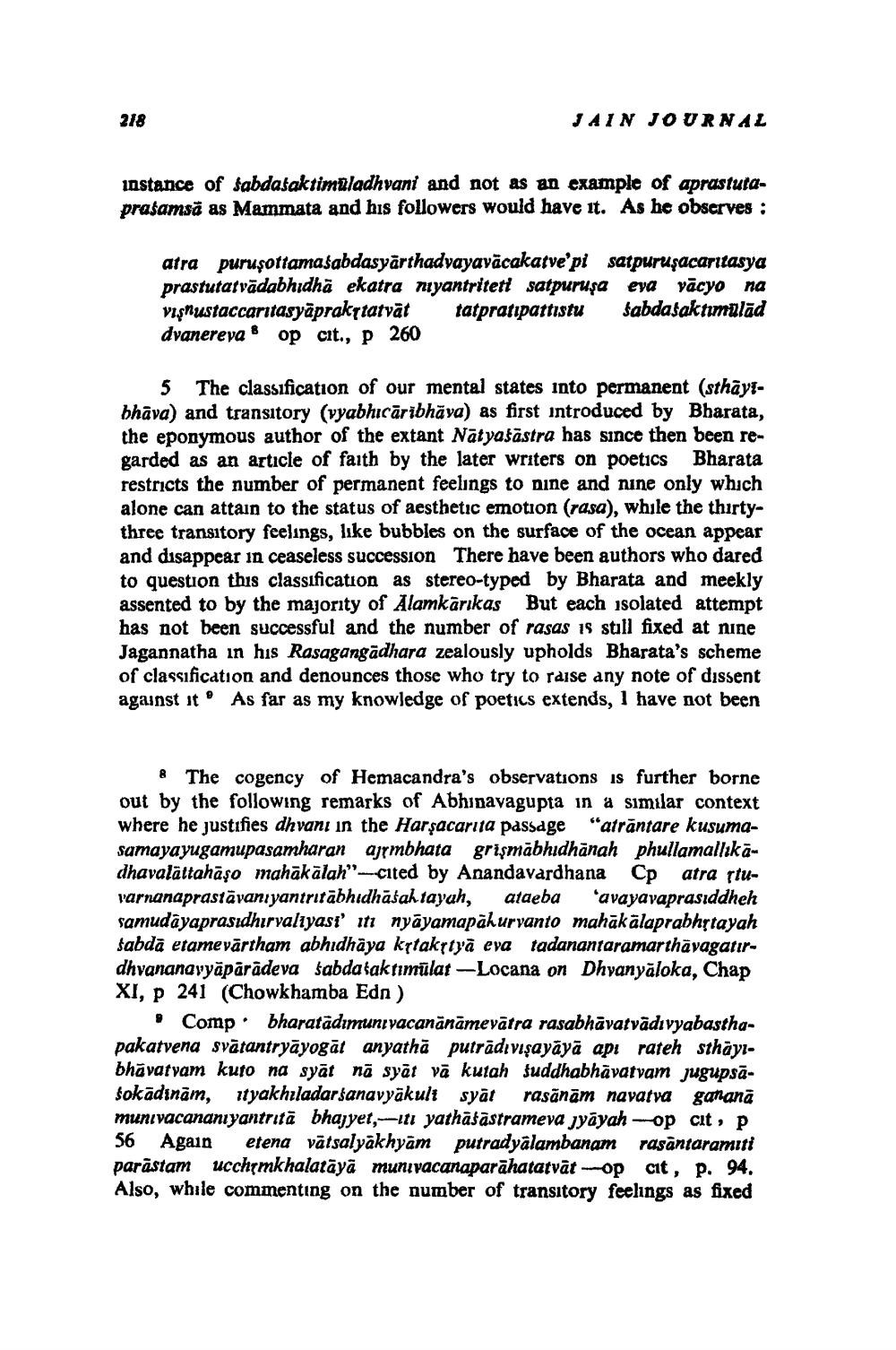________________
218
JAIN JOURNAL
instance of sabdasaktimuladhvani and not as an example of aprastutaprašamsä as Mammata and his followers would have it. As he observes :
atra puruşottamasabdasyārthadvayavācakarve'pi satpuruşacarıtasya prastutatvādabhidha ekatra niyantriteti satpuruşa eya vācyo na vishustaccaritasyāprakstatvāt tatpratipattistu sabdasaktimulad dvanereva & op cit., P 260
5 The classification of our mental states into permanent (sthāyibhāva) and transitory (vyabhıcāribhāva) as first introduced by Bharata, the eponymous author of the extant Nātyaśāstra has since then been regarded as an article of faith by the later writers on poetics Bharata restricts the number of permanent feelings to dine and nine only which alone can attain to the status of aesthetic emotion (rasa), while the thirtythree transitory feelings, like bubbles on the surface of the ocean appear and disappear in ceaseless succession There have been authors who dared to question this classification as stereo-typed by Bharata and meekly assented to by the majority of Alamkarikas But each isolated attempt has not been successful and the number of rasas is still fixed at nine Jagannatha in his Rasagangadhara zealously upholds Bharata's scheme of classification and denounces those who try to raise any note of dissent against ito As far as my knowledge of poetics extends, I have not been
& The cogency of Hemacandra's observations is further borne out by the following remarks of Abhinavagupta in a similar context where he justifies dhvani in the Harşacarita passage "atrāntare kusumasamayayugamupasamharan ajrmbhata grişmābhidhānah phullamallıkādhavalättahāşo mahākālah"-cited by Anandavardhana Cp atra rtuvarnanaprastāvanıyantritābhidhāśah tayah, ataeba 'avayavaprasıddheh samudayaprasıdhirvaliyasi' iti nyāyamapāhurvanto mahākälaprabhytayah Sabda etamevārtham abhidhāya kytakttyā eva tadanantaramarthāvagatirdhvananavyāparādeva šabda taktimülat - Locana on Dhyanyaloka, Chap XI, p 241 (Chowkhamba Edn)
Comp. bharatādımunivacanānāmevätra rasabhāvatvādıvyabasthapakatvena svātantryāyogāt anyathā putrādıvışayāyā api rateh sthayıbhāvatyam kuto na syāt nā syāt vā kutah fuddhabhāvatvam jugupsā. sokādinām, tyakhiladarsanavyäkult syāt rasānām navatva gananā munivacananıyantritā bhajyet,-it yathāśāstrameva jyāyah-op cit, P 56 Again etena vätsalyākhyām putradyalambanam rasantaramiti parastam ucchymkhalatāyā munivacanaparāhatatvāt op cit, p. 94. Also, while commenting on the number of transitory feelings as fixed




